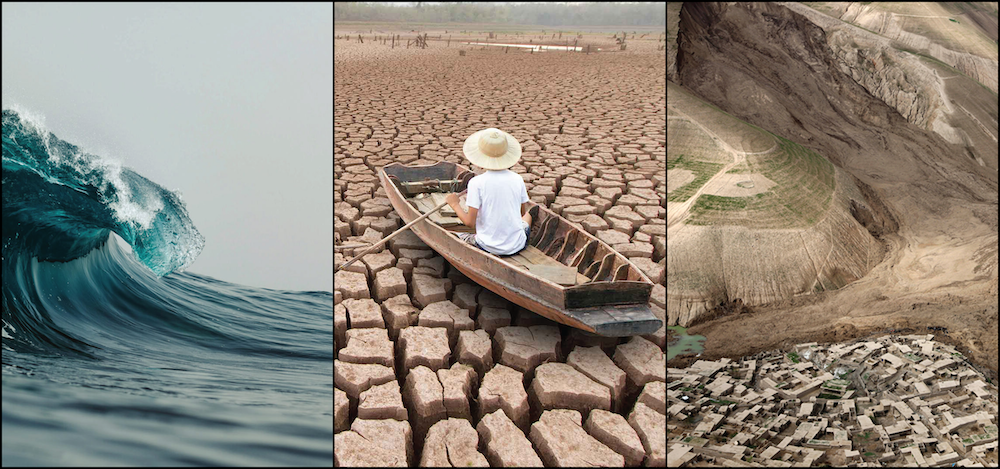Form:Annualmeeting2022: Difference between revisions
No edit summary |
No edit summary |
||
| Line 175: | Line 175: | ||
</div></div> | </div></div> | ||
<div class="row"><div class="col-sm-12"> | <div class="row"><div class="col-sm-12"> | ||
=Syvitski Student Modeler Award | =Syvitski Student Modeler Award 2022= | ||
'''Applications due by January 29, 2021'''<br> | |||
CSDMS invites graduate students from earth and computer sciences to compete for the annual “CSDMS Student Modeler Award.” If you have completed an outstanding research project in | CSDMS invites graduate students from earth and computer sciences to compete for the annual “CSDMS Student Modeler Award.” If you have completed an outstanding research project in 2021, which involved developing an earth science model, a modeling tool, or module linking technology, you can qualify for this award! [[Student_Modeler_Award_2022|Read more on how to apply]]. | ||
</div></div><div class="row"><div class="col-sm-12"> | </div></div><div class="row"><div class="col-sm-12"> | ||
=Important dates= | =Important dates= | ||
<font color="gray"></font> | <font color="gray"></font> | ||
* '''January 29''': Application deadline Syvitski Student Modeler Award | * '''January 29''': Application deadline Syvitski Student Modeler Award 2022 | ||
* ''' | * '''March 30''': Abstract submission deadline | ||
* ''' | * '''March 30''': Meeting registration deadline | ||
* '''May 17- | * '''May 17-19''': CSDMS annual meeting | ||
* '''May | * '''May 20''': CSDMS Executive and Steering committees meetings (''by invitation only'')<br><br> | ||
</div></div><div class="row"><div class="col-sm-12"> | </div></div><div class="row"><div class="col-sm-12"> | ||
=Land Acknowledgement= | =Land Acknowledgement= | ||
Revision as of 14:20, 4 November 2021

Registration
CSDMS 2022 annual meeting will most likely be a hybrid meeting and we'll do our best to make it an informative and enjoyable experience for all participants. Registration & abstract submissions will be accepted until 30 March 2022.
Introduction
This year’s meeting will be broad in scope, showcasing modeling-oriented projects that range from fundamental research in evolution of the landscape and seascape to more specific experimental or applied work involving the impact of environmental extremes on the Earthscape. Were environmental extremes are widely defined to capture the morphodynamic impact of for example wildfires, hydrologic extremes, tsunamis, storm surges, or hurricanes, on the Earthscape.
Events
The agenda will be posted closer to the meeting date.
Interested in providing a clinic during the next annual meeting? Contact CSDMS@Colorado.EDU.Poster guidelines
Please follow these poster guidelines to help you in presenting your poster virtual.
Syvitski Student Modeler Award 2022
Applications due by January 29, 2021
CSDMS invites graduate students from earth and computer sciences to compete for the annual “CSDMS Student Modeler Award.” If you have completed an outstanding research project in 2021, which involved developing an earth science model, a modeling tool, or module linking technology, you can qualify for this award! Read more on how to apply.
Important dates
- January 29: Application deadline Syvitski Student Modeler Award 2022
- March 30: Abstract submission deadline
- March 30: Meeting registration deadline
- May 17-19: CSDMS annual meeting
- May 20: CSDMS Executive and Steering committees meetings (by invitation only)
Land Acknowledgement
We acknowledge that the land, on which we will hold our meeting in the Boulder, Colorado, is part of the land within the Traditional Territories of the Arapaho, Cheyenne, and Ute peoples. Further we acknowledge that 48 contemporary tribal nations are historically tied to the lands that make up the state of Colorado. For more information, see the official CU-Boulder Acknowledgement.

